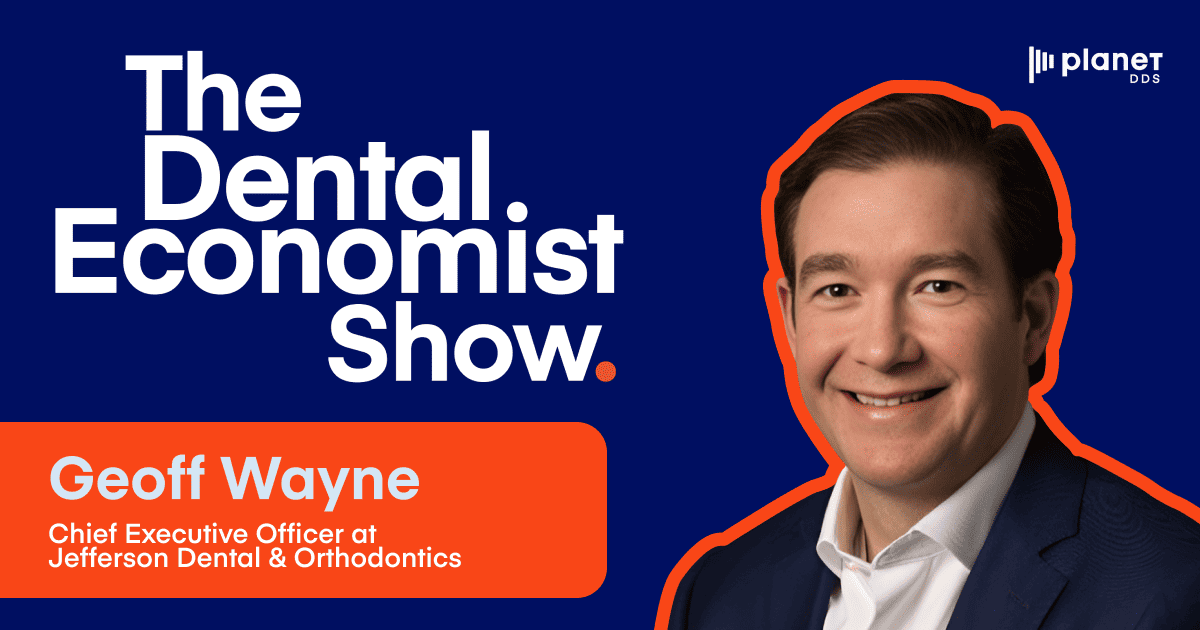What is the DSO Model in the Dental Industry?

Dentistry is an ever-evolving field. If you looked at a dental office from 100 years ago, it would look considerably different than practices today. The business side of dentistry is also constantly changing. Some dentists may want a better work/life balance while others prefer to have the business side of dentistry managed by someone else. Others may prefer to clock-in and clock-out or they may not have the capital to immediately open up their own practice. Whatever the reason, let’s dive into some facts about DSOs to see why the dental industry is consolidating into DSOs.
What are DSOs?
Dental Service Organizations (DSO) equip dentists with crucial business management and support within the practice, allowing dentists to focus on their patients instead of complex business operations.
How are DSOs Impacting the Dental Industry?
There are many reasons why people become dentists but one of the primary reasons is to help patients. For years, private dental practices have dominated the industry, which require dentists to take on much more responsibility than just treating patients. There are constant business responsibilities that demand a significant amount of time and energy.
That’s where DSOs come in. They provide essential business and management support for practices. Their supportive culture allows you to stay in a practice leadership role without sacrificing your standards of care.
DSOs provide support for dental practices in a number of ways:
- New and emerging dental technology
- Insurance reimbursement support
- Reducing the professional overhead burden for dentists
- Incentives for joining and the elimination of dental education debt
- Skill training and collaboration with colleagues
- More flexible scheduling
- Taking on administrative tasks
How Many Dental Service Organizations (DSOs) Are There?
According to the American Dental Association, 10% of dentists in the US were affiliated with a DSO in 2019. The ADA notes that this is a conservative estimate, and the percentage is likely to be higher, especially in 2022. Furthermore, 1 in 5 dentists under the age of 35 is part of a DSO.
While the exact number of DSOs is difficult to calculate, the top DSOs in the U.S. represent nearly 6,000 locations with over 11,000 dentists.
Affiliation data is proof that the DSO model works for some, but not all. While you might want to join the trend of dentists desiring a more part-time business role in exchange for more full-time patient care, many dentists still prefer the private practice business model.
Why fuels DSO growth and consolidation?
The American dental industry provides your dental practice with various business models. Many of those models require a high investment of not only time and training, but financing as well.
If you’re a private practice dentist you might be initially drawn to the DSO’s low-risk financial backing, typical of private equity firms. Independent practices and group practices throughout the United States have improved their financial future through affiliation with a DSO.
Being financially secure, debt-free, and off-loading the tasks associated with the business of dentistry are dominant trends with DSOs.
What’s Drawing Dental Practices to DSOs?
Your desire to focus on patients can be disrupted by many tasks including non-clinical operations and challenges associated with human resources. Allowing you, as a dentist, to focus on dental care is a huge draw among others to the DSO model.
Dentists who are just entering the field especially find DSOs attractive. The average dental school graduate has over $300,000 in student loans and starting a new business isn’t cheap. DSOs allow dentists to get into the field right after graduation, without the added stress of opening and running their own business. As an added bonus, many DSOs help new dentists pay down their loans.
DSOs also tend to attract dentists close to retirement. They allow them to pass off the business responsibilities and transition to a more part-time schedule, where they can focus on their patients.
As you’re processing the trends and your own attraction to the DSO model it might help to consider the common advantages and disadvantages of DSOs.
Weighing the Pros and Cons of DSOs
Here are a few advantages to consider:
Technology advances
Dental technology is advancing as we speak. However, the financial and implementation challenges can be daunting to many dentists.
DSOs provide the research, cost negotiation, the necessary implementation, training, and ongoing tech support required by emerging technologies.
Compliance monitoring and security
Dental industry regulations are an ongoing concern among dental practice owners. HIPAA and OSHA violations can put your practice at risk. And with cyberattacks in healthcare organizations on the rise, dental practices need to stay vigilant as they house and send larger amounts of sensitive information.
DSOs monitor compliance trends, including patient communication and the new regulatory laws impacting dentistry. Their assistance can save you time and put your mind at ease knowing you’re compliant. DSOs can also implement various safeguards across the organization to protect practice data.
Career growth and peer collaboration
Keeping your skills and leadership sharp requires time. No matter how much training you have under your belt, problems can arise that exceed your level of expertise.
DSOs have a built-in community of peer support, training, and problem-solving collaboration that many independent dentists don’t have access to. Their specialist relationships provide you with hands-on access to professional growth and expanded services.
Insurance assistance
Issues with claims acceptance and reimbursements, and policy changes are headaches that require time and energy. Production can suffer when your front desk team is forced to solve various insurance problems daily.
DSOs can negotiate better rates with a broader network of insurance providers. Their insurance divisions are equipped to assist you with answering most of the questions your patients have about claim filing and reimbursement.
Healthy work-life balance
Work overwhelm is a leading cause of stress outside of the office. Achieving a healthy work-life balance can be tricky when treating patients and managing a business.
DSOs take the majority of the management tasks off your plate. Giving you more freedom to focus on patients, maintain a life outside of the practice, and avoid career burnout.
What Does the Future of DSOs Look Like?
It’s not likely that DSOs will decrease in popularity, more and more dentists have been transitioning to DSOs. The changes alone within the dental industry will prompt many – perhaps you – to consider joining one in the future.
At Planet DDS, we are proud partners with many dental groups and organizations alike. Get an inside look at how Denticon Practice Management Software helps one DSO standardize, centralize, and grow here.



